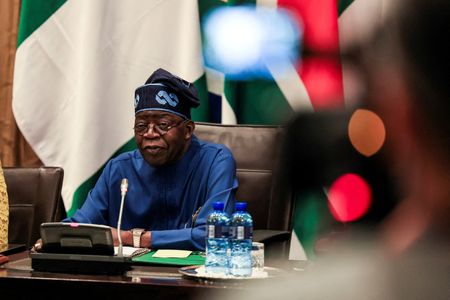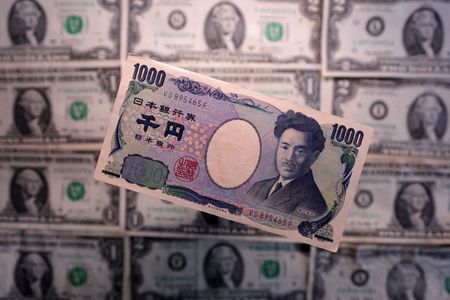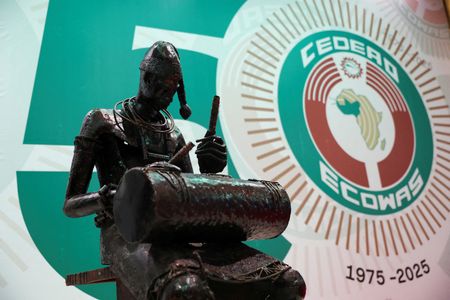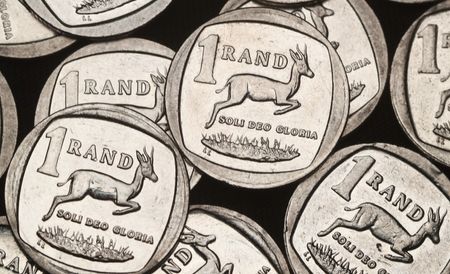By Camillus Eboh
ABUJA (Reuters) -Nigerian President Bola Tinubu asked parliament to approve more than $21.5 billion in foreign borrowing for its 2025-26 borrowing plan to plug financial shortfalls to boost growth, according to a letter from the president seen by Reuters.
Tinubu also asked parliament to approve 2.2 billion euros ($2.5 billion) and 15 billion yen ($103.97 million) of borrowing abroad in addition to $2 billion dollar-denominated borrowing at home.
The new borrowing makes up around 60% of the total spending earmarked in the 2025 budget and marks a shift in the government plan to promote investment abroad to attract equity investors rather than debt to curtail rising debt costs.
“In light of the significant infrastructure deficit in the country and the power of financial resources needed to address this gap amid declining domestic demand, it has become essential to pursue prudent economic borrowing to close the financial shortfall,” Tinubu said in his letter.
The 2025-26 borrowing plan will cover all sectors of the economy with specific emphasis on infrastructure, agriculture, health, education, water supply, growth, security, and employment generation, as well as financial and monetary reforms, Tinubu said.
Tinubu ended a costly subsidy on petrol and devalued the naira currency after he came to power in 2023, in the country’s boldest reform effort to stimulate growth.
But the moves spurred inflation and triggered a cost of living crisis in the West African nation.
The World Bank this month said Nigeria’s economy recorded its fastest growth in about a decade in 2024, driven by a strong fourth quarter and an improved fiscal position, but warned that persistently high inflation was still a challenge.
($1 = 0.8819 euros)
($1 = 144.2700 yen)
(Reporting by Camilluis EbohWriting by Chijioke Ohuocha, Editing by William Maclean and David Evans)








